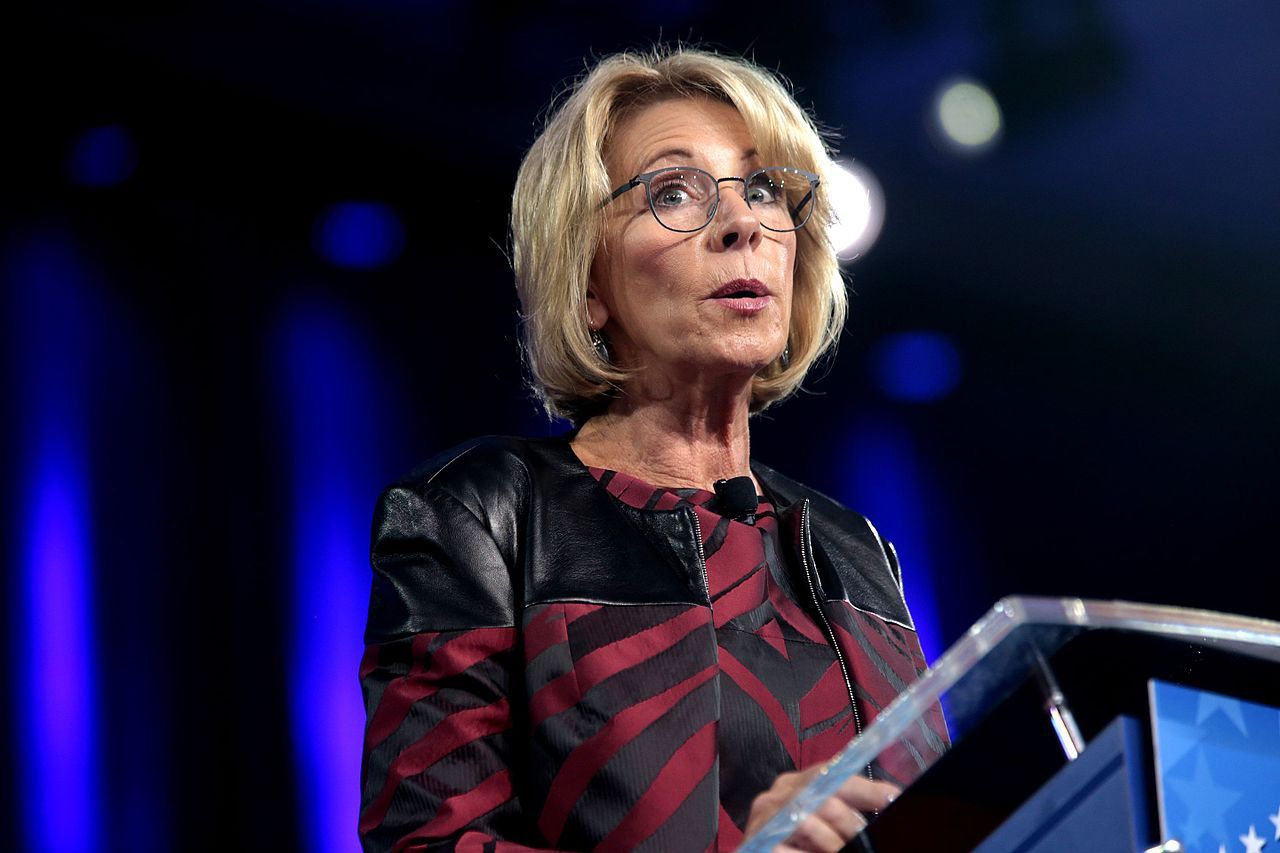A federal proposal set to be released before Thanksgiving could alter how universities across the country must handle sexual assault and harassment allegations, according to The Washington Post.
Education Secretary Betsy DeVos is planning to replace the Obama administration’s informal Title IX guidelines, which were not legally binding, with rules that would give more rights to the accused — most notably allowing them to cross-examine their accusers.
The new guidelines, which were detailed in an earlier draft of the proposal published online in September, show DeVos plans to narrow the definition of sexual harassment, raise the evidence standard in evaluating misconduct claims and lower universities’ liability.
Mike Poterala, the University of Maryland’s general counsel, said the university administration would review the new regulations once they were officially proposed and “see if it’s something we want to comment on,” but that none of the school’s processes would change unless and until new legislation mandates them to.
[Read more: An LGBTQ advocate at UMD wants Title IX to investigate the football program]
In general, Poterala added, he thinks sexual assault cases that are adjudicated on college campuses shouldn’t play out the same way they would in traditional courtrooms.
“I’m not in favor of universities having to create sort of shadow court systems,” Poterala said. “I’m in favor of more informal proceedings.”
Earlier this year, an appeal of the 2017 court case Doe vs. Baum — involving a University of Michigan student who violated that school’s sexual misconduct policy — stated that universities “must give the accused student or his agent an opportunity to cross-examine the accuser.”
“If someone is subject to being expelled — which is maybe the most severe form of discipline you can have — then they’re entitled to more due process,” Poterala said, “whether it’s cross examination or things like that.”
[Read more: UMD students march in annual Slut Walk amid Title IX Office shakeup]
Though scheduled to be published within a week, the proposal will be subject to public comment before it is finalized.
The reports come amid a shakeup in this university’s Office of Civil Rights and Sexual Misconduct. Its director, Catherine Carroll, resigned in August, and deputy director Leslie Annexstein left in October, along with two other staffers who have since been replaced.
DeVos’s new rules also reduce liability for universities, requiring a school official with authority to “institute corrective measures” have “actual knowledge” of an allegation before they investigate. Obama-era guidance expected schools to investigate if they knew or “reasonably should” have known about the allegation.
Regardless, Poterala said this university would remain committed to victims of sexual assault and harassment.
“One thing I don’t expect to change is a basic expectation that everyone’s rights need to be respected,” he said, “and our very strong and consistent commitment to helping victims of these situations.”
In September 2017, DeVos rescinded the Obama administration’s Title IX guidelines and implemented “interim guidance” for universities. The new regulation comes in the wake of DeVos promising to replace the 2011 Obama guidance, which she said “failed the accused” in a 2017 speech.
The interim guidance allowed schools to raise the standard of evidence in sexual misconduct cases from a “preponderance of the evidence” to “clear and convincing evidence.” The new rules would make this change permanent and require universities to use the same guideline for complaints against employees and faculty as well.
Additionally, DeVos’ regulations define sexual harassment as “unwelcome conduct on the basis of sex that is so severe, pervasive and objectively offensive that it denies a person access to the school’s education program or activity.”
The Obama administration, by contrast, defined it simply as “unwelcome conduct of a sexual nature.”



